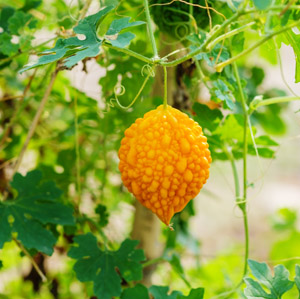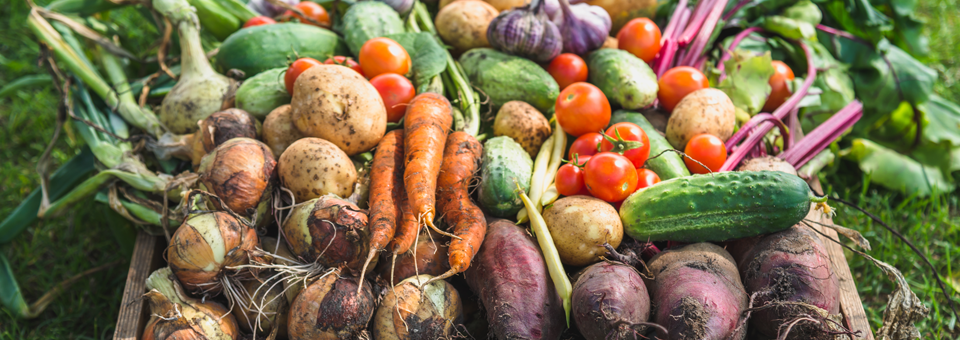The right to grow your own food is a tradition as old as America…
But today, government dictocrats are trying to make it illegal for you to grow a vegetable garden – on your own property!
Property rights are so fundamentally American that in 1790 John Adams wrote that without them, “liberty cannot exist.”1 Today, 230 years later, property owners are still fighting Big Government for this right…
If you attended my Confidential Cures 2019 Summit you met my friend Joel Salatin. He’s a family farmer who is considered an outlaw.
It’s an outrage. Over the past four years, Joel has received numerous court orders threatening to shut him down.
This renegade has been through trials, lawyers and litigation to save his family’s property…
And provide food for his family and community – without needing to rely on modern farming practices.
Like me, Joel knows that today’s commercial farmers grow fruits and vegetables that are designed to look good on store shelves. Their goal is to produce the maximum number of crops at the cheapest cost. Nutrition has nothing to do with it. Even the U.S. Department of Agriculture admits that vitamin and mineral levels have fallen by as much as 81% over the last 30 years.2
Big Agra is robbing you of the lifesaving nutrients you need. Thanks to their profit-driven farming techniques, more than 30% of the world’s cropland is now unproductive.3
A University of Texas team compared Agriculture Department figures from over 70 years… They found huge declines in nutrient content for 43 common fruits and vegetables.4
And in the most common produce – cabbage, lettuce, spinach and tomatoes – the average mineral content plummeted from 400 mg to less than 50 mg. That’s almost 90% of minerals gone.5
As a regular reader, you know the bulk
of your calories should come from grass-fed beef, organ meat, wild-caught fish, pastured eggs and healthy fats. Low-carbohydrate vegetables round out the remaining foods on your plate.Since I don’t eat a ton of vegetables, I devote most of my garden to growing all kinds of natural herbs, healing roots and medicinal plants that I use as simple, effective cures for my patients.
One of the most important plants I grow is a weedy looking vine called Jamaican cerasee.
But cerasee is no weed. It’s been used by traditional healers for centuries as a way to treat and prevent abdominal pain and eliminate fevers. Today we know it can reduce inflammation, lower blood pressure, boost your immune system and fight cancer.
I use it to treat my diabetic patients. More than 100 studies prove cerasee’s value in treating blood sugar problems. Compounds in cerasee help prevent the spikes and drops in glucose levels that are so dangerous to diabetics.
In fact, one study on 25 diabetic patients found that cerasee is more effective than Big Pharma’s blockbuster diabetes drug Avandia.6
I like to use cerasee in my cooking. I cut the green fruit open lengthwise without peeling. Then I remove the seeds and the unripe fruit from inside and chop it like a green pepper. I boil the pieces until tender, and add them to my stir-fry. You can also add a little bit to soups or beans to give a slightly bitter flavor.
Stabilize out-of-control blood sugar with cerasee tea

I grow cerasee in my backyard. I use the leaves to make a detox tea for my patients.
For my patients I make a healing tea. Here’s how…
- Add about ½ an ounce of dried or fresh cerasee leaves to ¼ liter of boiling water.
- Simmer on low for 5 minutes.
- Turn off the heat and steep for 10 minutes.
- Strain off the tea into a cup.
Sweeten with raw honey if it’s too bitter. And don’t go overboard. Too much can cause vomiting and diarrhea.
To Your Good Health,

Al Sears, MD, CNS
1. John Adams. “Discourses on Davila.” Editor: Charles Francis Adams. The Works of John Adams. Vol. 6 (1851);280.
2. Vegetables without Vitamins,” Life Extension Magazine March 2001
3. Global Soil Degradation Report. GRID-Arendal
4. Davis D, et al. “Changes in USDA food composition data for 43 garden crops, 1950 to 1999.” J. Amer. Coll. Nutr. 2004;23:669–682.
5. Complete Pharma Research. “We are what we eat.” Complete Research Jan 2010. Available from: http://www.complete-pharma.com/images/Article_2010_01.pdf.
6. Rahman I, et al. “Serum sialic acid changes in non-insulin-dependant diabetes mellitus (NIDDM) patients following bitter melon (Momordica charantia) and rosiglitazone (Avandia) treatment.” Phytomedicine. 2009 May;16(5):401-5.

